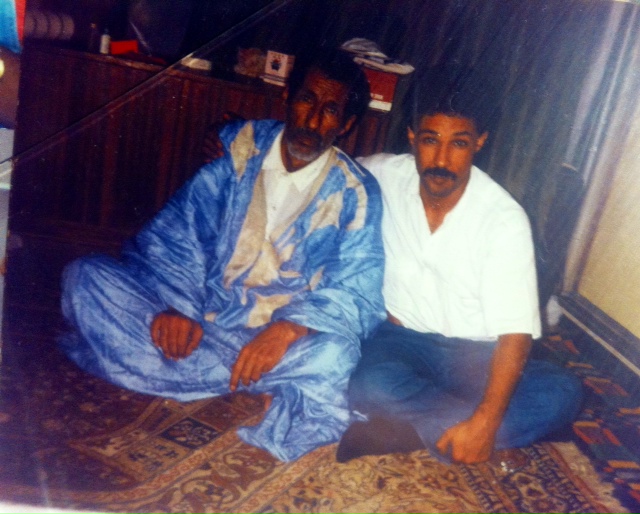
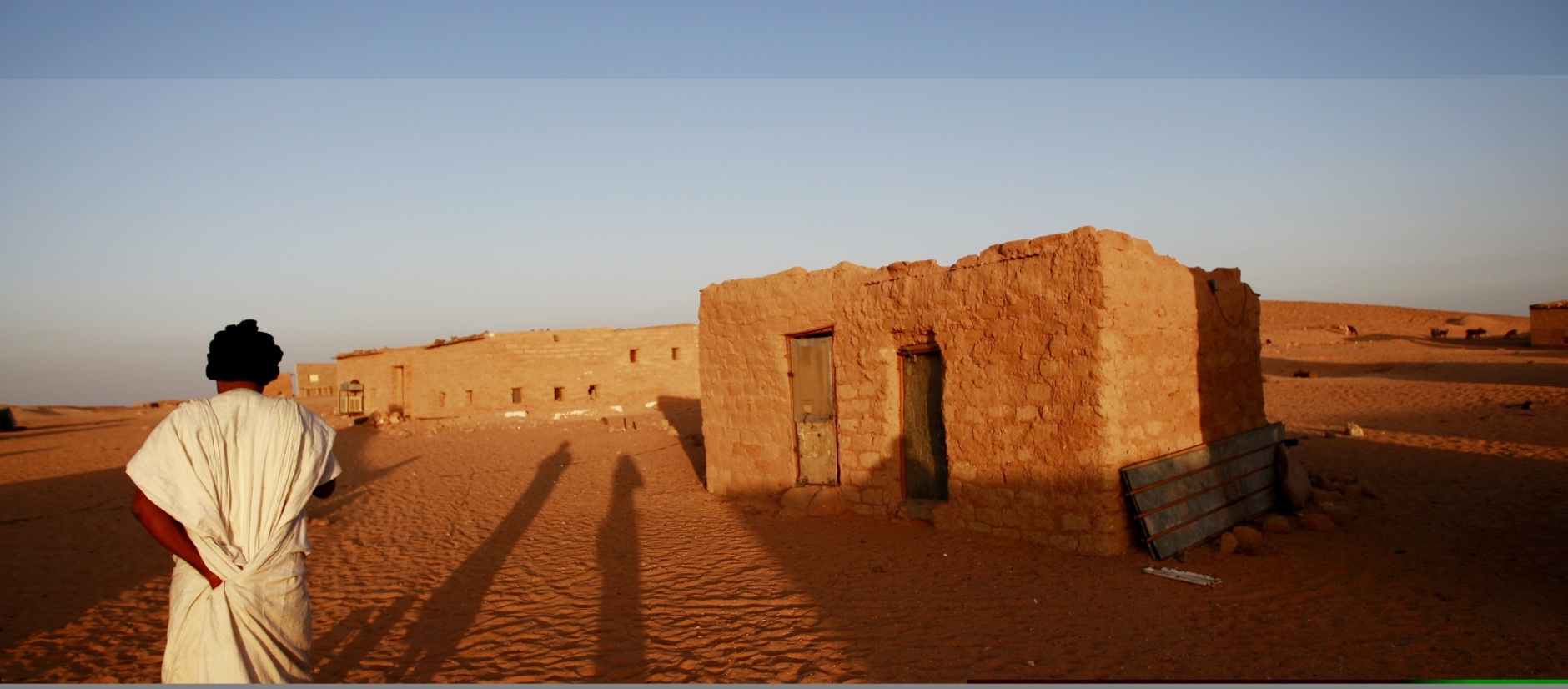
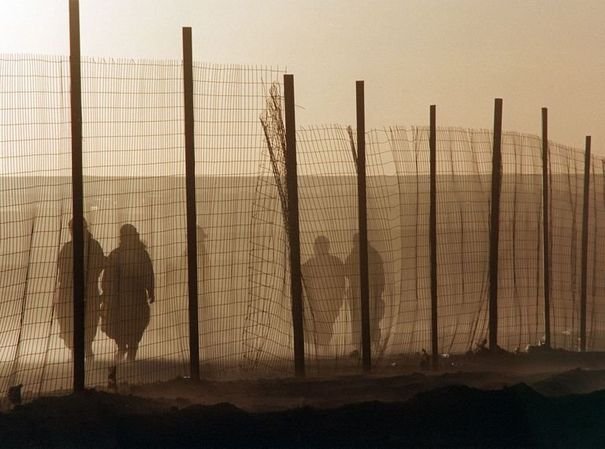
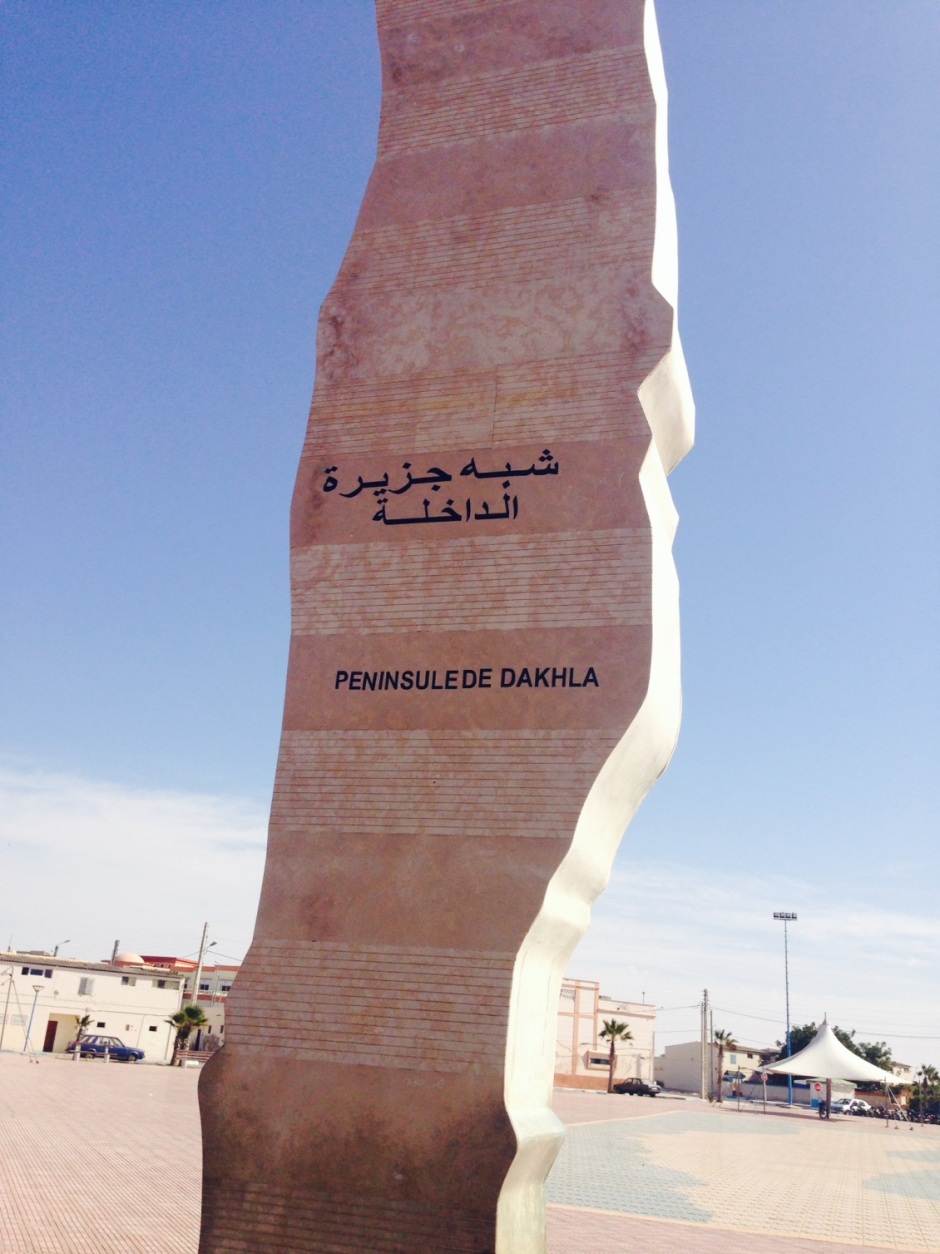
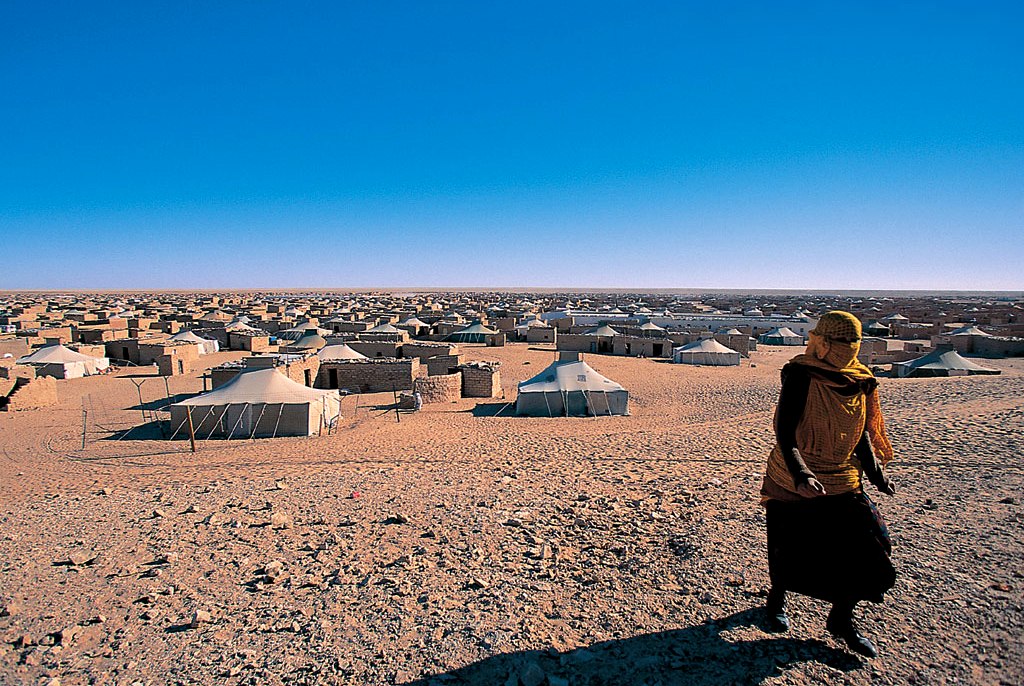
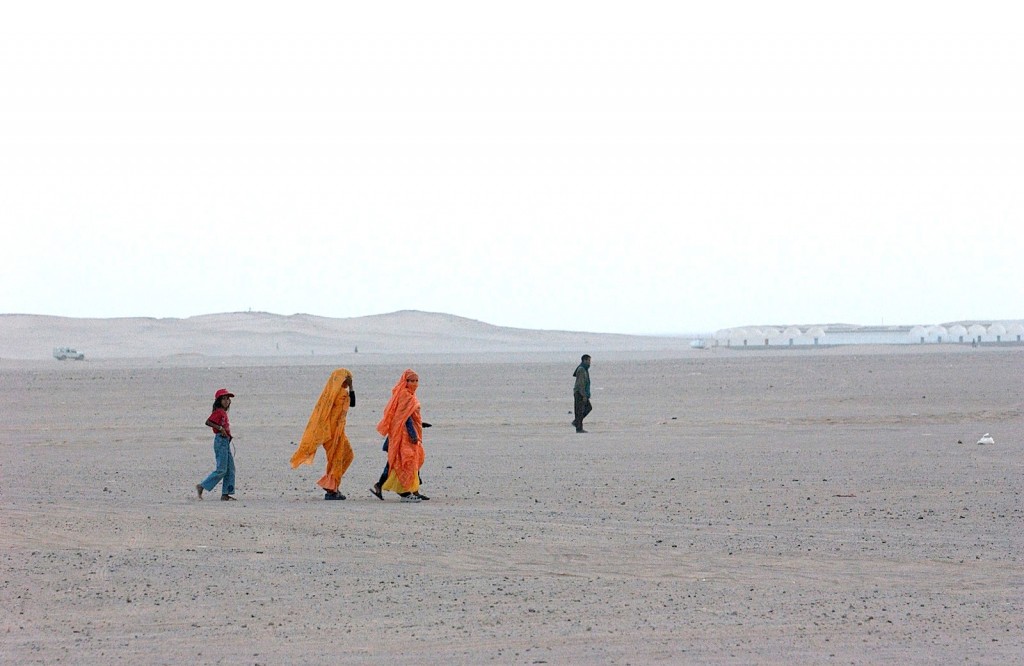
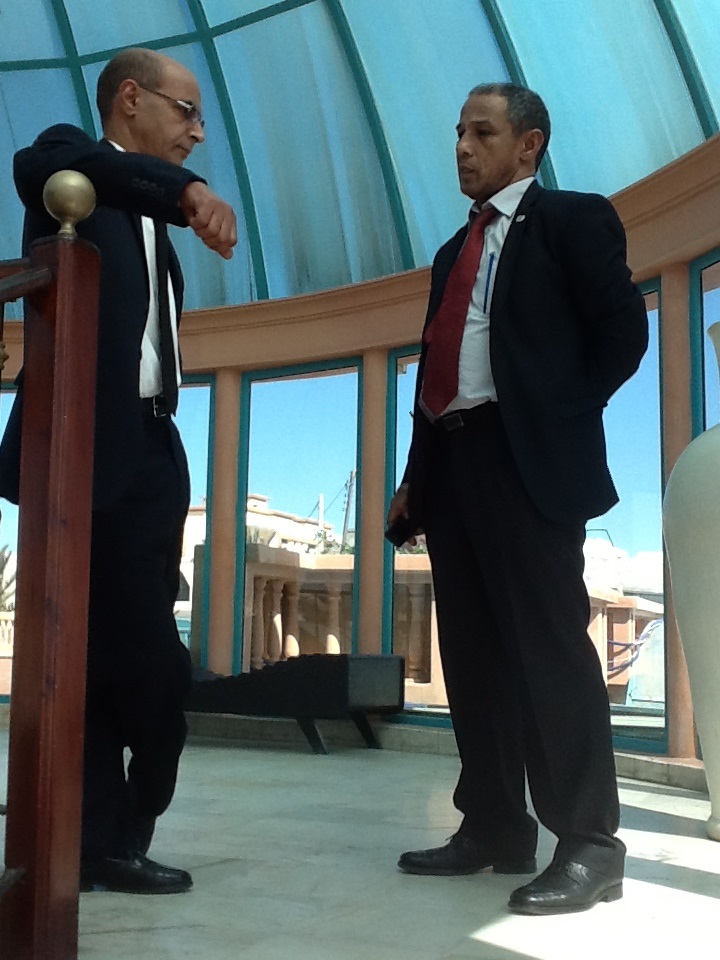
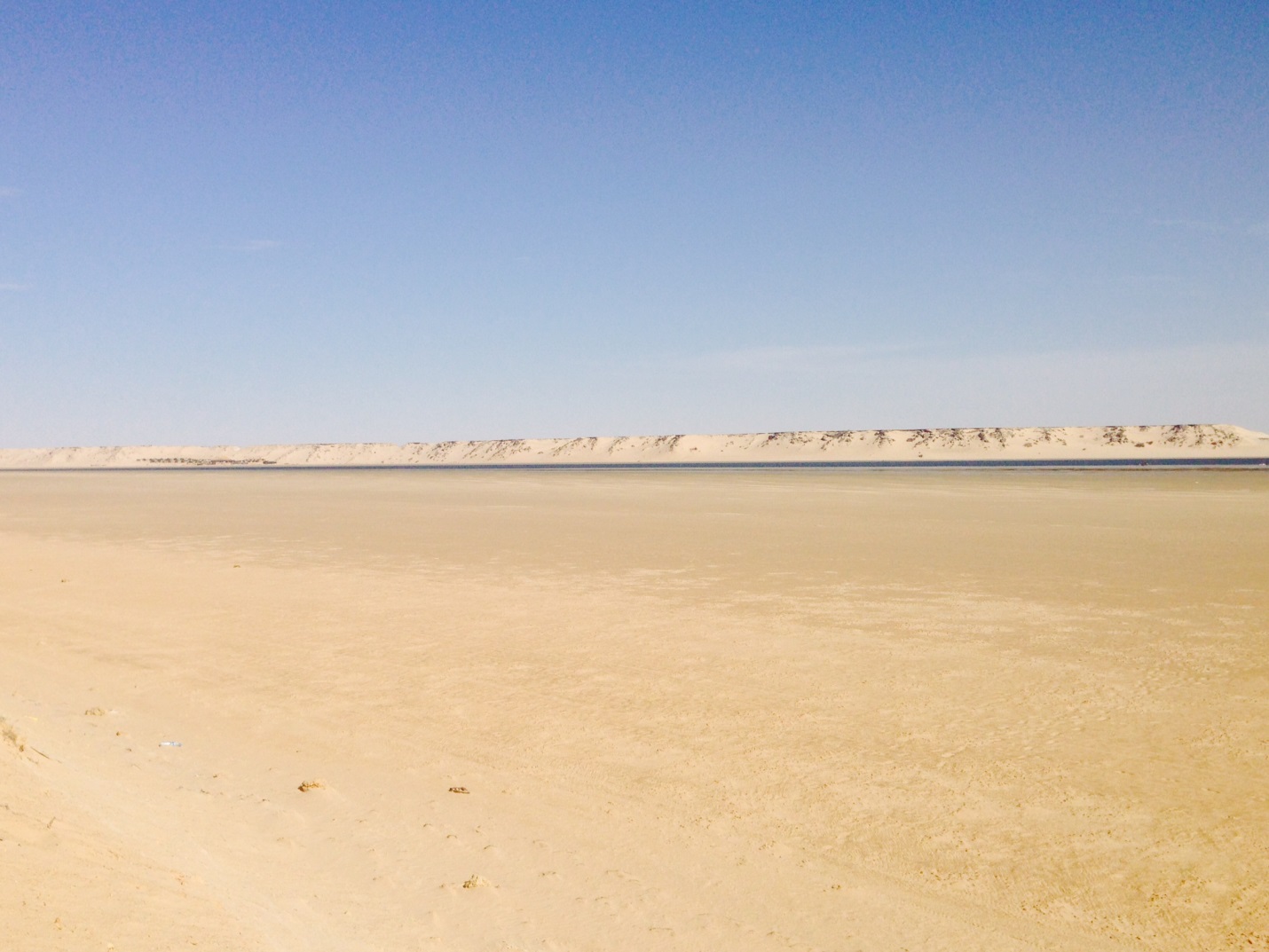
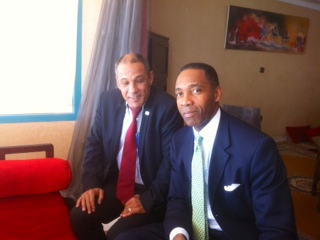
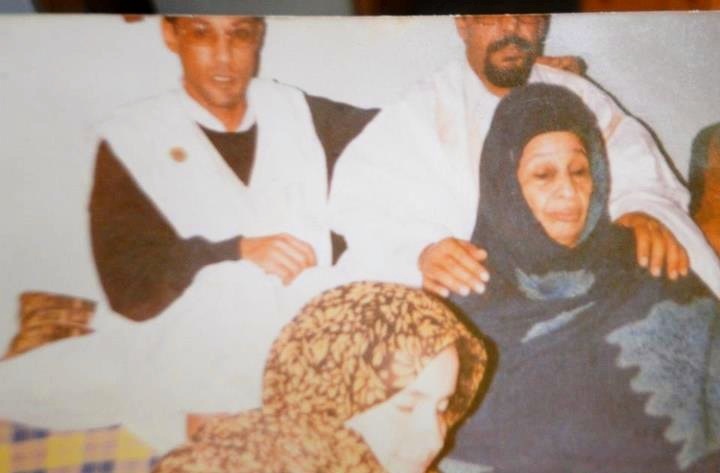
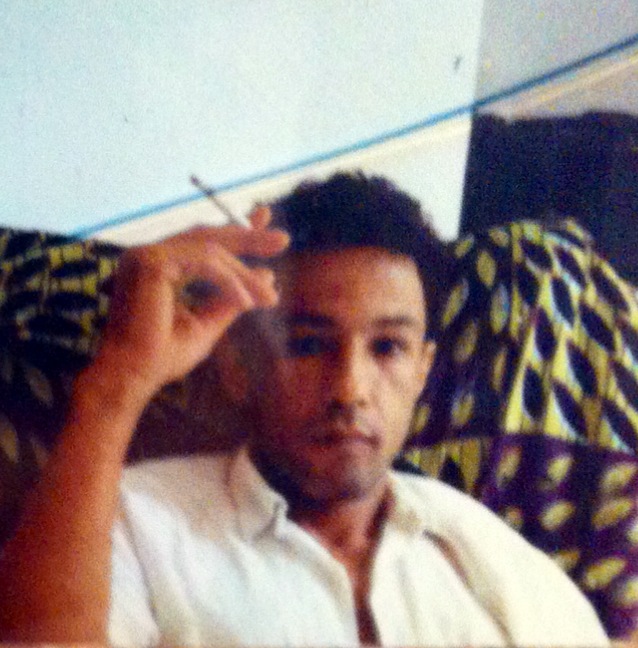
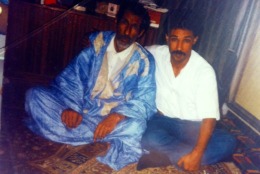
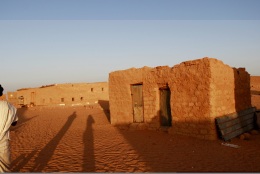
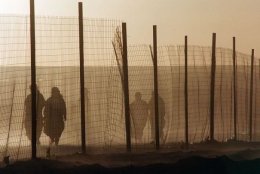
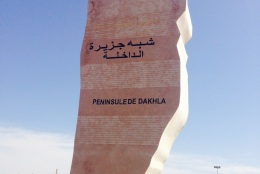
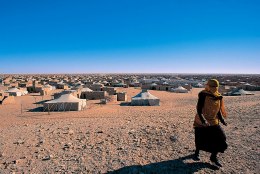
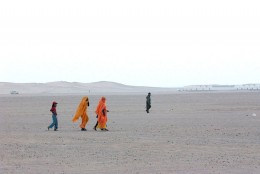
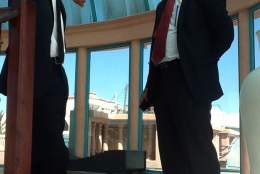
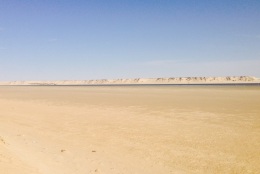
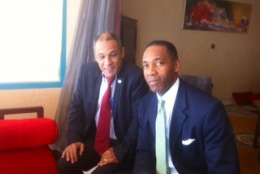
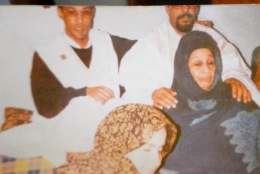
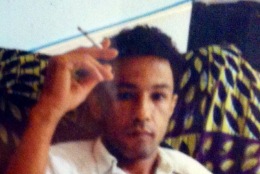
Editor’s Note: WTOP National Security Correspondent J.J. Green spent several weeks in North Africa investigating and reporting on al-Qaida’s evolving terrorism pipeline, refugee camps and the fragile security profile in the region.
In the process of his reporting, he met Mohammed Cherif. Below is his story.
Some readers may find portions of Cherif’s story to be graphic.
Read more about Green’s experience in North Africa in his Reporter’s Notebook.
DAKHLA, Western Sahara — His hair is thinning, his boyish looks are fading, but when you look into his eyes and observe his body language, even at 55, Mohammed Cherif still has the same intense, youthful energy he had 37 years ago as a teenager.
He’s very happy and animated as he sits down with friends in a local restaurant in his hometown of Dahkla on the coast of Western Sahara. In front of him is his favorite meal of camel meat and vegetables.
The gathering is designed partly to reminisce about happy times and Western Sahara’s ongoing struggle for independence; but the talk, just as it usually does, comes right back to his extreme, personal sacrifice for that cause.
For five years Cherif was imprisoned in an underground, 6-foot-by-4 1/2-foot earthen prison cell.
He was only able to bathe and change clothes once every six months, his long hair and skin crawled with lice and other insects. He was tortured and beaten with rubber and leather straps. He slept and ate inches away from an open human waste bucket.
On this day in January, the meeting is also a strategy session to stop the pipeline of other Sahrawi people (inhabitants of the Sahara Desert) who’ve unwittingly followed his footsteps into the same hell in the Polisario refuge in Tindouf, Algeria.
Many Sawhari ended up there because, like Cherif, they were fooled into thinking they had found the key to ridding Western Sahara of Spanish rule and later Moroccan influence.
The Rebellion
In the early 1970s, the Polisario Front was started by a group of young Sahrawi university students in Morocco to force an end to Spanish rule. When they were ignored by the governments of Morocco and Algeria, they relocated to Western Sahara and started an armed insurgence.
Western Sahara is a disputed territory in North Africa, bordered by Morocco to the north, Algeria to the northeast, Mauritania to the east and south, and the Atlantic Ocean to the west.
Spain began its occupation in the late 1800s. Spain in 1975 extricated itself and in 1976, Morocco and Mauritania divided up the territory.
The Polisario Front, which later gained the backing of the Algerian government, formed the Sahrawi Arab Democratic Republic and started a guerrilla war against both countries.
Fueled by the rebellious music of Pink Floyd and the fiery speeches of Argentine revolutionary Che Guevara, Cherif made a decision that has haunted him ever since.
“I was young and the Polisario had worked hard to attract young people like me and women to their movement during the Spanish period,” he said.
Fed up, like many other young men, with the European-inspired dominion of Western Sahara, he joined the Polisario and was shipped off to a place called Rabouni, in southwestern Algeria. There he began his transition from a teenager to a soldier.
The process involved physical training, mental indoctrination, and cultural reprogramming. The evolution triggered an awakening that eventually cost him dearly — everything from his prized Rolling Stones music to the very thing he went there to fight for: freedom.
The Mistake
Greatly influenced by the idealistic Polisario movement and its stirring recruiting efforts, young Cherif signed up to fight against the Moroccan government.
The examples set by free societies of the West provided the foundation for his decision. American culture, European rhetoric and the Argentine liberation movement was to him the evidence that a strong fight could bring freedom to Western Sahara.
But what he did not realize was the Cold War had divided the world; and the side he’d chosen to fight with was completely against the values he idealized.
When he showed up to join, he was issued a djellaba (a loose fitting outer garment worn in Arabic countries) two uniforms, a transistor radio and cigarettes.
Cherif said his prized cassette tapes of Pink Floyd and the Rolling Stones were taken away. The Polisario said they were trappings of western depravity. Waving off the confiscation and destruction of his favorite music as a necessary sacrifice. He willingly embraced the restrictions placed on him.
But, after several years of military training in Libya, his enthusiasm wore off and his eyes were opened to the reality of the Polisario movement.
“With the passage of time, I discovered the system was very closed. I realized that it was a very controlling communist system. There was no freedom; there was no public opinion, just the opinion of the political leadership of the Polisario,” said Cherif
Frustrated, by the corruption, favoritism and clannish behavior demonstrated by the Polisario, he began to openly question the leadership of the organization.
When word got back to them, his life was turned upside down.
“They accused me of working against the revolution. I was young very free- thinking and I was criticizing the top leadership of the Polisario. And this they do not permit! If you do that, they try to find a solution to implicate you on charges of subversion against the revolution.”
The Consequences
For daring to criticize them, he says the Polisario took him into custody, blindfolded him, beat him with two inch rubber cables dragged him into an interrogation session.
Cherif said, “The interrogator asked me, ‘Boy do you know where you are?’ I said if there is a prison here, this is it.”
He said the interrogator laughed heartily.
“When the laughter finally stopped, he told me, ‘No this is not a prison, this is a center of re-education.'”
But it was a fancy way of saying they were going to beat him half to death, starve him and force him to live in a dirty, smelly, insect-infested, dark hole in the ground until he came around to their way of thinking.
After the first of many interrogation sessions, he was sentenced to what he calls “five years in hell.”
“More or less, it was a situation that was a very difficult time in my life. It changed many things in my life,” Cherif said.
The first thing that changed was his name. He was no longer Mohammed Cherif. He was now known as prisoner number 16. That would be his name for the next few years.
Later, he would be called number 22 and finally number 47.
“I was incarcerated for 5 years in a cell that measured 5-feet-11-inches tall, and less than 5-feet-wide. I slept in this place. I did all of my human necessities in a 10-pound container,” he said.
His beard grew to be almost a foot long. He became infested with lice, he was allowed to bathe and change clothes once every six months.
“I never slept, because every hour of every night, the guard would come by and knock on the top of the hole and I had to answer present. If I didn’t answer, I would be dragged out and beaten nearly to death with rubber cords and cables that were two inches in diameter.”
He had lost all track of time and reality, because he never saw the daylight and never talked to anyone except his frequent interrogators. He was allowed to come out of his hole once or twice a day just long enough to empty the bucket that was his toilet.
When allowed out, “I had to wear a metal helmet with small eye holes in it, so I couldn’t see anyone else or where I was,” Cherif said. “I almost went blind.”
He was also close to losing his mind.
Survival
Cherif was one of the lucky ones. He was strong. But later on in his five year prison term, his health began to fail and he began inching closer to death’s door.
He didn’t know it at the time, but his comrades were dying.
“Many people there with me died of malnutrition, because we had poor diets and no vitamins. We lived like animals on a ranch”, he said.
Tragically when inmates died, their bodies were discarded just like farm animals – – disappearing without a trace, leaving families wondering what had happened to their sons.
He had lost track of time. He didn’t know what year it was or what day or month it was. He only knew that he was about to break.
“You have a constant terror in your mind. Physically you’re in the cell, but in your mind you’re asking yourself when are they going to call me to be interrogated? What is this all about? What did I do? Why am I here? You’re thinking all of this. You also think I’m going to die here. There are so many questions that won’t leave you in peace. You’re always like this.”
In addition to his body breaking down, the psychological torture was robbing him of the ability to distinguish between reality and fantasy. Living in a state of constant terror, his mind began to play tricks on him.
He was physically pestered by colonies of lice and other insects in the earthen hole he was confined to.
Then something remarkable happened.
“I started talking to myself.In those moments when I had a little bit of tranquility, I was dreaming and creating ideas,” he said.
Not only did he talk to himself. “I was always talking with other people … that didn’t exist.”
He created elaborate scenarios with groups of people, in different locations. At times, he imagined himself eating, traveling and enjoying himself. But when desperation took over, “sometimes I was praying to God to get me out of there, without any serious injury or harm.
“But I talked constantly to others like they were in there with me. It helped me a lot to maintain my sanity.”
The Escape
During brief moments of solitude when Cherif was able to compose himself and create a mental barrier between the raunchy smell of his dark, subterranean cell and the constant crawling of insects in his long unkempt hair and on his unwashed body, he devised a plan, piece-by-piece, to turn the tables.
“I told myself ‘When I get out of this hole, I’m going to find a way escape,'”
So he pretended that he had come around to the Polisario’s way of thinking and when the day came, he made his move.
“When I got out of prison, they sent me back to the camps (in Algeria) as a teacher working with Cubans in the Polisario camps,” he says.
After more than a year there, he was sent to the Algerian Embassy in Algiers to work in international relations. That was his big break.
“There, I got myself a passport, because I was a diplomat in the Embassy there,” Cherif says. “They sent me on a mission to Spain and that’s when I escaped.”
He was a part of a delegation in Madrid, when he slipped out of his hotel room on November 11, 1990.
“I came here to (Dakhla, Western Sahara) and then to Morocco, where I stayed for a few months and then I went to Holland.”
Once he arrived in Holland Cherif set up an organization called Light and Justice. He lives there now with his wife and daughter and travels frequently around the world campaigning for human rights.
His primary purpose is to preserve the memory of his comrades who disappeared and died while imprisoned with him. His group is also digging into the circumstances of their deaths.
As for the survivors – “I can tell you stories today about people that came out of the prison completely crazy,” Cherif says.
He endured years of physical and psychological torture in the Polisario prisons to free Western Sahara from the grip of other regional powers.
He survived because of his exceptionally strong will. But not a day goes by, that he doesn’t find himself back in that hole in in the ground — trying to free himself and other prisoners still suffering in the unforgiving Sahara desert.
In the meantime, Western Sahara is still fighting for its freedom.
Follow @WTOP on Twitter and on the WTOP Facebook page.







